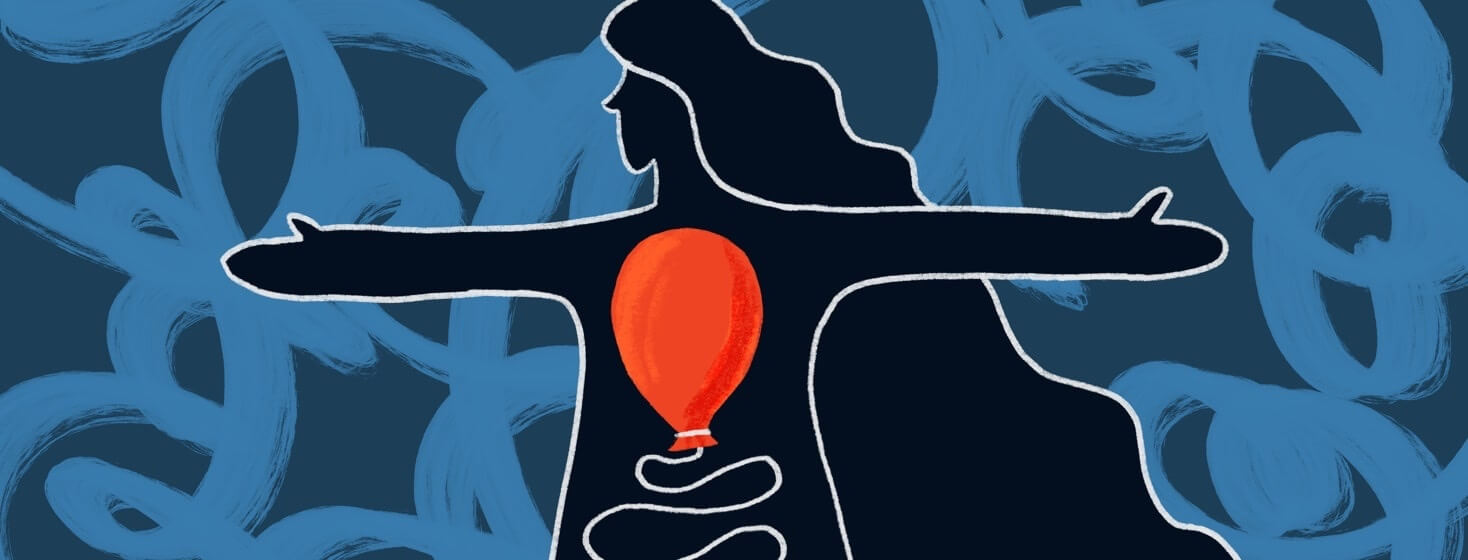COPD and Bloating
If you have chronic obstructive pulmonary disease (COPD), you may expect symptoms like being short of breath or coughing. However, some less well-known symptoms still impact people with COPD. Many people with COPD report having digestive issues. This includes excessive bloating.1,2
What is bloating?
It is normal to have air in your body. It can come from the air that you swallow while eating. Your gut bacteria also make gas when they break down food. Our bodies produce several liters of gas every day when we digest food. Gas is normally passed through our bodies as wind. However, if it cannot pass, trapped air causes bloating.3
Bloating can be uncomfortable for many people. It can cause stomach pain, flatulence, or burping. It may also cause your stomach to stick out. Bloating can also cause extra problems for people with COPD. Excessive bloating can make breathing harder.1,2,4
COPD can cause bloating in several different ways. These include:1-5
- Difficulty breathing
- Hyperinflated lungs
- Diet and eating
- Inactivity
- Medicine side effects
Difficulty breathing
COPD makes breathing difficult. When you feel short of breath, you are more likely to take short, small inefficient breaths. It is much easier to swallow air when breathing this way. This can lead to a buildup of air in your stomach. This causes bloating, which can make breathing harder, and continues the cycle.1,4,5
Hyperinflated lungs
For many people with COPD, the lungs may become overinflated. This can happen as air starts to get trapped in damaged areas of the lungs. When the lungs overinflate, they take up more room in the chest. This also means if you eat a large meal, your stomach is more likely to press against the lungs and cause problems breathing.4,5
Diet and eating
For people with COPD, eating a large meal can leave you feeling short of breath and bloated. When we eat a large meal, our body requires more energy to digest food. This can cause shortness of breath. Eating large meals also expands the stomach, causing your stomach and lungs to fight for space in your body. Even for people who do not have COPD, certain foods and drinks will also cause bloating, such as beans, carbonated drinks, dairy products, and wheat.2,4,5
Inactivity
If you have COPD, feeling tired and out of breath can make exercise and physical activity seem impossible. Many COPD patients fall into a cycle. They avoid physical activity, but this may make you feel more tired and breathless over time. Inactivity can also lead to bloating. Even gentle exercises like walking can naturally relieve bloating.3-5
Medicine side effects
Treatment for COPD can be different for everyone. But many common treatments, like inhalers or steroids, can cause constipation as a side effect. This can also contribute to bloating.1,4
How to manage bloating
A good way to manage bloating from food is to manage your diet. Avoid foods that can cause gas. These include: 2,3
- Fatty or sugary foods
- High-fiber foods
- Raw vegetables
- Complex carbohydrates like beans or cabbage
It may also help to eat several small meals during the day instead of 3 big ones. Small meals give your lungs and diaphragm more space to move. Small meals are also less likely to make you feel out of breath.2,3
Other actions that may help include:1-3,5
- Drink 6 to 8 glasses of water per day in small sips
- Limit the fluids you drink during meals
- Avoid caffeine and alcohol
- Eat slowly and take breaks between bites
- Avoid carbonated drinks or soda.
- Wear loose-fitting clothes
- If you use oxygen, make sure to use it while eating
If you are concerned about COPD and bloating, talk to your doctor. They may be able to offer suggestions for relief and monitor any concerning symptoms.

Join the conversation